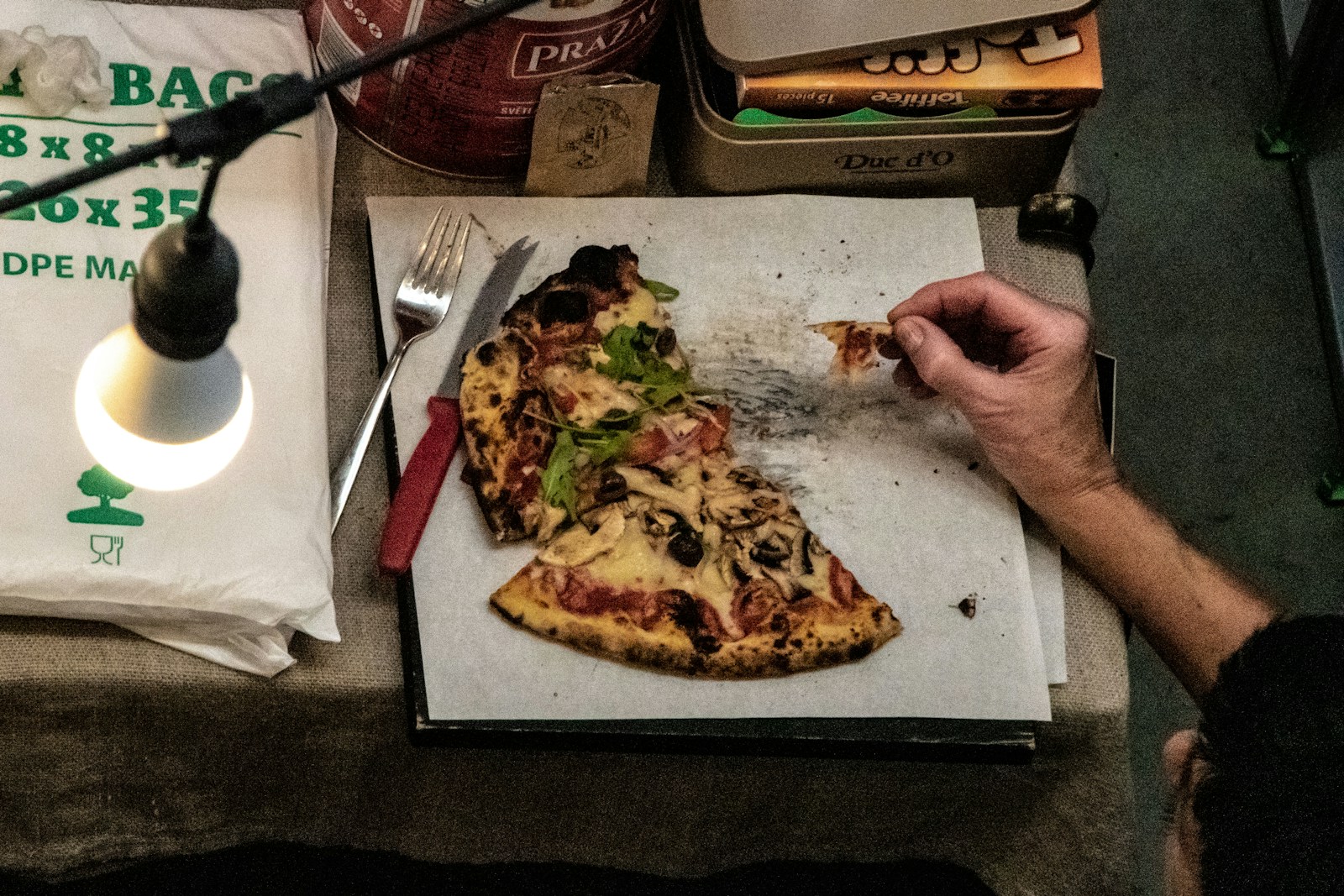
披萨
pī sà

pizza
In Chinese, '披萨' is used to describe the popular Italian dish consisting of a yeasted flatbread typically topped with tomato sauce and cheese and baked in an oven. It is particularly loved in its adopted Chinese home, where a number of variations have taken root, including some with localized toppings.
Example sentences using: 披萨
他正在烤披萨。
Tā zhèngzài kǎo pīsà.

He is baking a pizza.
This sentence describes an ongoing action, of someone baking a pizza.
披萨配啤酒很好。
Pīsà pèi píjiǔ hěn hǎo.

Pizza goes well with beer.
This sentence is suggesting a good combination of pizza with beer.
这是我做的披萨。
Zhè shì wǒ zuò de pīsà.

This is the pizza I made.
This sentence is about the pizza made by the speaker.
披萨店就在路口。
Pīsà diàn jiù zài lùkǒu.

The pizza shop is at the intersection.
This sentence is giving the location of a pizza shop.
我喜欢吃披萨。
Wǒ xǐhuān chī pīsà.

I like eating pizza.
This sentence is expressing a personal preference for eating pizza.
你要什么口味的披萨?
Nǐ yào shénme kǒuwèi de pīsà?

What kind of pizza do you want?
This sentence is asking someone's preference for the type of pizza they want.
披萨已经准备好了。
Pīsà yǐjīng zhǔnbèi hǎo le.

The pizza is already prepared.
This sentence is reporting that the pizza has been prepared and is ready.
我们的披萨很受欢迎。
Wǒmen de pīsà hěn shòu huānyíng.

Our pizza is very popular.
This sentence is highlighting the popularity of their pizza.
请给我一份披萨。
Qǐng gěi wǒ yí fèn pīsà.

Please give me a pizza.
This sentence is a polite request for a pizza.
披萨要热乎乎的吃。
Pīsà yào rèhūhū de chī.

Pizza should be eaten hot.
This sentence is giving advice about the best way to consume pizza, which is hot.